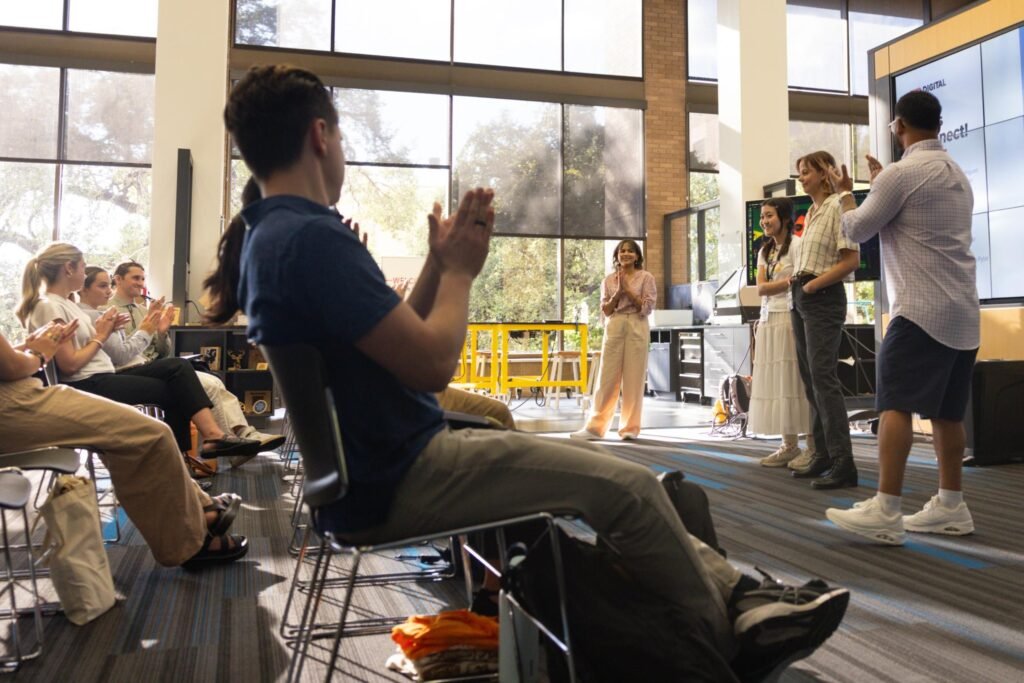In the midst of the COVID-19 pandemic, a University of Texas faculty member tried to bridge the gap between students and future employers. Jamil Hooper founded Career City Limits, a week-long lecture series hosted by the University of Texas School of Design and Creative Technology.
From Tuesday through Friday this week, students and alumni of all majors heard from a variety of tech pioneers in hybrid sessions. The school hosts the series each semester, with talks from new and returning companies. Companies that participated last week included Verge Aero and Electronic Arts, the studio that developed video games such as “The Sims” and “Madden NFL.”
“It can be very hard to get (experts’) attention,” said Hooper, industry relations manager for the School of Design and Creative Technology, “but this session gives (students) the opportunity to engage with these people for an hour and a half.”
On Wednesday, students met virtually with employees from ILM Immersive, a subsidiary of Lucasfilm and Industrial Light & Magic. The storytelling studio, which won an Emmy Award last weekend for Outstanding Innovation in Emerging Media, gave a presentation about the hard and soft skills needed to succeed in the virtual and mixed reality industry.
“(Students) are hearing directly from employers about what will be important to them in order to stand out as individuals, not just in their specific organization, but across their industry,” Hooper said.
Claren Moyers (UT Design, ’21) currently works on the pharmacy design team at HEB Digital, fine-tuning the app’s user experience. On Wednesday, Moyers and other employees walked students through the process of applying for HE-B’s summer internship program. In addition, employees offered insight into the realities of working for such a large corporation.
“[Career City Limits]gives you a more realistic expectation of what the job is actually like,” Moyers says. “It’s good to know what the real day-to-day life is like and how the salary compares to other industries, and it’s good to have very realistic expectations rather than just hitting the bat and realizing, ‘I really hate this,’ or ‘I never thought it would turn out like this.'”
Kaden Kluk, a first-year arts and entertainment technology student, said the session gave him a new perspective on jobs he could have after graduating from college.
“We found that a lot of these companies had very unique and customized roles, like the terrain artists and designers we talked about at ILM,” Clack says. “It was very niche work, but we thought it was really amazing the highly specialized talents that these people had.”

